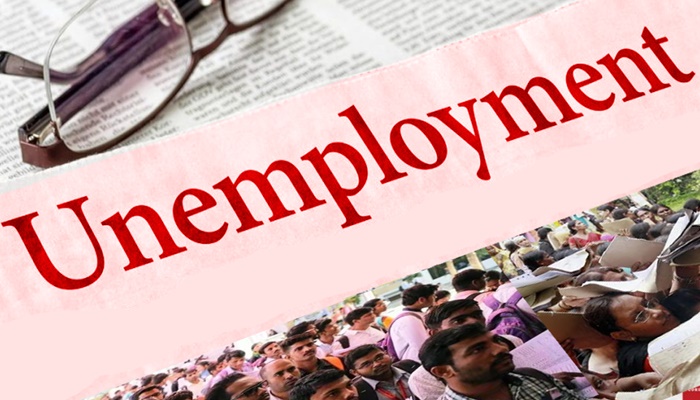In a move that has sent shockwaves throughout the corporate world, BlackRock, the world’s largest asset manager, has ordered its senior managers—approximately 1,000 managing directors globally—to return to the office five days a week, effective immediately. This directive marks a significant shift from the hybrid work model that allowed employees to work from home one day a week, a policy instituted in 2023. While junior staff can still maintain one remote workday, the mandate for senior leaders signals a broader trend among major corporations to roll back pandemic-era flexible work arrangements. However, this decision raises critical questions about employee well-being, productivity, and the evolving role of AI in reshaping workplace dynamics.
The Push for Full-Time Office Presence
BlackRock’s rationale for the mandate centers on fostering collaboration and harnessing the “energy” of in-person interactions, as articulated in internal communications from COO Robert Goldstein and Global Head of HR Caroline Heller. The firm argues that face-to-face engagement drives innovation and strengthens organizational culture, particularly in fast-moving financial markets. This sentiment echoes broader industry trends, with companies like Goldman Sachs and JPMorgan Chase also tightening return-to-office policies, citing the need for mentorship and spontaneous idea-sharing.
Yet, employees are pushing back. A recent poll by recruitment firm Hays, cited by The Guardian, found that nearly half of professionals would consider quitting if forced to return to the office full-time. At BlackRock, the abrupt shift has sparked concerns among workers who have adapted to hybrid models that balance professional demands with personal flexibility. One anonymous employee, quoted on X, described the mandate as “a step backward,” arguing that remote work has proven effective for many tasks, particularly those requiring deep focus. This sentiment aligns with research from the Office for National Statistics, which found that hybrid workers in the UK save an average of 56 minutes daily on commuting, allowing more time for sleep, exercise, and well-being.
The Employee-Centric Perspective
From an employee’s vantage point, the mandate feels like a disconnect from the human-centric work models championed by industry thought leaders. Gartner’s research highlights that flexible hybrid arrangements—where employees have input into their work design—result in workers who are 2.5 times more likely to be high-performing and four times less likely to report fatigue. BlackRock’s decision to prioritize senior leaders’ office presence over flexibility risks undermining these benefits, particularly for employees who have thrived under hybrid setups.
Moreover, the mandate comes at a time when AI is transforming workplace dynamics. BlackRock has been a vocal proponent of AI, with COO Goldstein revealing at the 2024 Future of Finance conference that ChatGPT was used to draft a strategy memo, an experiment that went unnoticed by employees until feedback highlighted its impersonal tone. Former BlackRock HR executive Jeff Smith, in an interview with The American Reporter, emphasized that AI should enhance, not replace, human judgment in HR practices. He advocated for a “hybrid” approach—blending technology with empathy—to create personalized employee experiences. Yet, BlackRock’s rigid return-to-office policy seems to sideline this philosophy, prioritizing physical presence over tailored work arrangements that could leverage AI to optimize productivity.
The Broader Context: AI and Workplace Evolution
The integration of AI in HR is reshaping how companies approach talent management, from recruitment to performance analytics. SHRM’s 2025 HR trends report underscores that HR professionals are increasingly using generative AI to streamline processes and boost engagement. However, the report also warns of “shadow AI”—unsanctioned use of AI tools by employees—which can pose governance risks. BlackRock’s mandate, by limiting remote work, may inadvertently curb employees’ ability to experiment with AI tools in flexible settings, stifling innovation.
On LinkedIn, HR thought leaders like Marc Effron of The Talent Strategy Group have noted that 86% of CHROs now report directly to CEOs, signaling HR’s growing strategic role. Yet, BlackRock’s top-down approach to office mandates risks alienating talent at a time when career advancement and flexibility are top priorities for workers. A study by George Westerman and Abbie Lundberg, cited in HR Curator, found that employees often experience a gap between promised career development and reality, a disconnect that rigid policies could exacerbate.
The Cost of Flexibility’s Decline
The financial implications of BlackRock’s decision are also noteworthy. The Guardian reported that return-to-office mandates have driven up prime office space rent in cities like London by 7.5% in 2024, reflecting increased demand. For employees, the loss of remote work translates to higher commuting costs and time, which can erode job satisfaction. A post on X highlighted that hybrid work has boosted city center spending on Thursdays, suggesting that flexible models support local economies without requiring daily office presence.
BlackRock’s move also contrasts with global workplace trends. Global Workplace Analytics predicts that 25–30% of the workforce will work from home multiple days a week post-pandemic, a figure supported by the success of flexible hybrid models in improving retention and reducing burnout. Companies like Unilever, as noted in a LinkedIn article by Lynda Gratton, have redesigned work to prioritize employee input, leading to higher engagement and productivity.
A Call for Balance
BlackRock’s mandate reflects a broader corporate tug-of-war between control and flexibility, but it risks overlooking the employee-centric principles that drive modern workplaces. AI offers tools to personalize work experiences, streamline tasks, and enhance decision-making, yet its potential is maximized in environments that prioritize trust and autonomy. By mandating a full-time office return, BlackRock may achieve short-term collaboration gains but at the cost of long-term talent retention and well-being.
Employees deserve a voice in shaping their work environments, particularly as AI redefines productivity. BlackRock has an opportunity to lead by integrating technology and flexibility, balancing in-person collaboration with the autonomy workers crave. Without this balance, the firm risks losing the very talent that drives its success in an increasingly competitive landscape.
Source – https://www.bwpeople.in/article/blackrocks-office-push-ignites-employee-backlash-concerns-556476




















